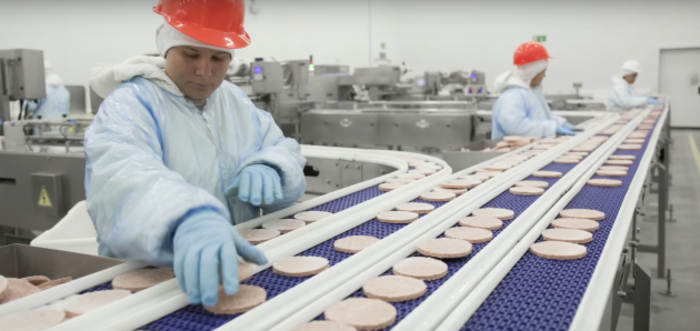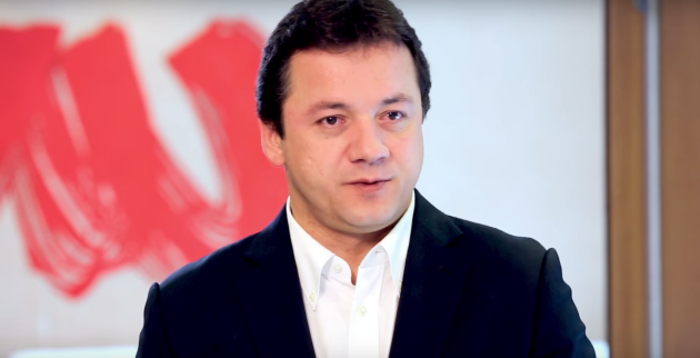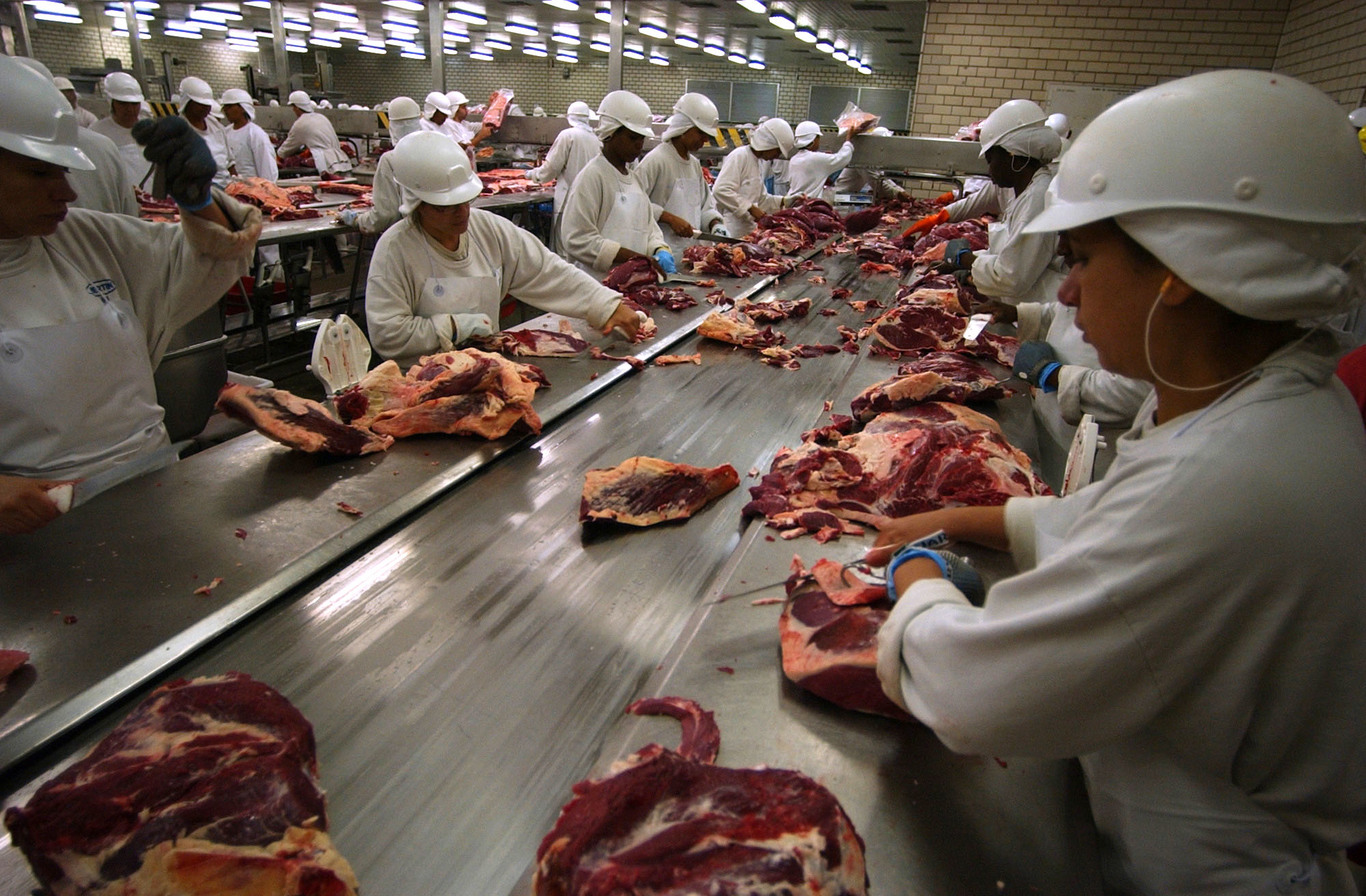The story of the world's biggest meatpacker and its on-again, off-again move to Ireland
Brazilian food giant JBS was planning to set up a local arm to run its international business.
WHEN BRAZILIAN FOOD company JBS announced earlier this year that it was planning to shift a massive chunk of its assets to Dublin, it brought more unwanted scrutiny on how Ireland deals with international businesses.
The firm was looking to do a big corporate restructuring that would have seen the parent company for its whole business based in Dublin.
The announcement prompted a fair bit of controversy and much hand-wringing among Irish officials, who said that they “did not encourage” the kind of brass-plate moves that JBS was looking to execute.
However, the food giant quietly announced at the end of last month that the plan was off. But what was this move all about – and why was it axed?
What is JBS?
JBS is one of Brazil’s largest companies and is the biggest meatpacking business in the world.
The firm produces processed chicken, beef, pork and so on, and is headquartered in São Paulo. It had sales of over 120 billion Brazilian real (€33 billion at today’s rates) in 2014, up by a third on the year before, and recorded a profit of just over 2 billion real (€560 million).
JBS took over Moy Park, a chicken producer and one of the biggest companies in Northern Ireland, towards the end of 2015 for $1.5 billion (€1.4 billion) – which was one of the biggest-ever deals for a firm north of the Border.
 JBS bought Moy Park last year
JBS bought Moy Park last year
Once the deal closed, there were some suggestions that JBS was also considering doing something significant in the south as well.
In December 2015, several Irish shell companies linked to JBS were established amid rumours that the firm was considering moving its headquarters to the Republic.
What’s the deal?
The whispers and speculation proved untrue – at least, as far as the company’s HQ was concerned.
However JBS did reveal in early August that it was planning to change its corporate structure so that the new parent company of the entire JBS group would be an Irish entity called JBS Foods International, which would have been listed on the New York Stock Exchange.
The company also confirmed that it intended to be tax resident in the UK for corporate tax purposes. This meant that the new company would not make use of Ireland’s famous 12.5% corporate tax rate.
JBS said that it was planning to contribute the vast majority of its assets, except for anything relating to its Brazilian beef business, to a new holding company, New Holdco, that would be owned by JBS Foods International.
The documents filed by JBS do not say where the holding company was incorporated. This means that while the new Irish company would have controlled most of JBS’s assets, worth tens of billions of dollars, it would not have directly held them.
 JBS was planning to list on the New York Stock Exchange
JBS was planning to list on the New York Stock Exchange
So why the mysterious decision to move to Ireland? JBS highlighted in the documents that the new parent company, JBS Foods International, would be governed by Irish law.
This would mean a couple of changes, notably that it would make it more difficult for any US cases against JBS or its executives to be enforced.
One investment analyst at a São Paulo investment firm was quoted by the Wall Street Journal as saying that the reorganisation “was going to cut (financing) costs for the company”. The listing in New York likely would have made the firm attractive for more investors.
What was the reaction?
The move got plenty of coverage when it was first announced, with some initially speculating that it was due to Ireland’s low corporate tax rate.
Economist Jim Power branded the move “a total joke” that would bring further unwelcome scrutiny of Ireland’s business regime.
The Department of Finance was also quick to come out against the deal, saying that Ireland “does not encourage such transactions”.
It was closely followed by the Brazilian government’s decision to include to Ireland on a list of tax havens, alongside notoriously lax jurisdictions such as Panama and the Isle of Man.
Part of the reason for the initial attention, and likely the reason that the Department of Finance came out against the plan so quickly, was probably because some mistook the move for an ‘inversion’ deal.
 Workers in a JBS factory
Workers in a JBS factory
An inversion is when a company shifts its domicile to a lower-tax country while keeping its material operations in the country of origin.
Several large firms, particularly US pharma and med-tech companies, have completed such deals in Ireland over recent years. They have become controversial as they are generally viewed as little more than a means for a company to legally slice its tax bill.
However, as JBS Foods International was to be tax resident in the UK for corporate tax purposes, that wasn’t the situation this time around.
Legal problems
The Wall Street Journal reported in September that legal problems at JBS may delay the company’s move to Ireland and listing in New York.
At the start of the month, JBS CEO Wesley Batista was barred by a court order from managing any business while officials followed up on suspected corruption at a paper pulp company owned by his family’s investment company J&F Investimentos SA.
Batista reclaimed his position the following day after reaching an agreement with prosecutors. J&F and the Batistas have denied any wrongdoing.
 JBS chief executive Wesley Batista
JBS chief executive Wesley Batista
JBS is also the focus of a separate probe into Brazil’s Development Bank, known as BNDES, which provides money and support to companies that contribute to Brazil’s economy.
Officials are examining possible irregularities in loans provided by BNDES to JBS, which financed a major acquisition spree by the food company. JBS has said its transactions with BNDES were conducted in a clear and transparent way. The development bank has also denied any wrongdoing.
Deal off
Towards the end of October, JBS suddenly called off the reorganisation that would have resulted in the shift to Ireland.
BNDES holds a stake of just over 20% in JBS via its equity arm, BNDESPar. The development bank started to invest in JBS in 2007 and as part of its agreement with the meatpacker had veto rights over corporate reorganisations.
BNDESPar voted against the restructuring, saying that it would “substantially alter the rights and duties of all of the company’s shareholders”. JBS’s shares plunged 18% immediately after the decision was announced.
On a conference call, CEO Batista would not be drawn as to why the organisation had vetoed the move, saying that JBS had kept the bank informed while evaluating the plan.
Michel Temer, Brazil’s new president, replaced the previous head of the BNDES in May, and Batista said that both he and JBS are adapting to the bank’s new management.
However, Reuters reported that the shareholder agreement with BNDES would end in 2019 and leave the company free to reorganise. JBS still owns Moy Park and may cast its eye south of the border again – so watch this space.






